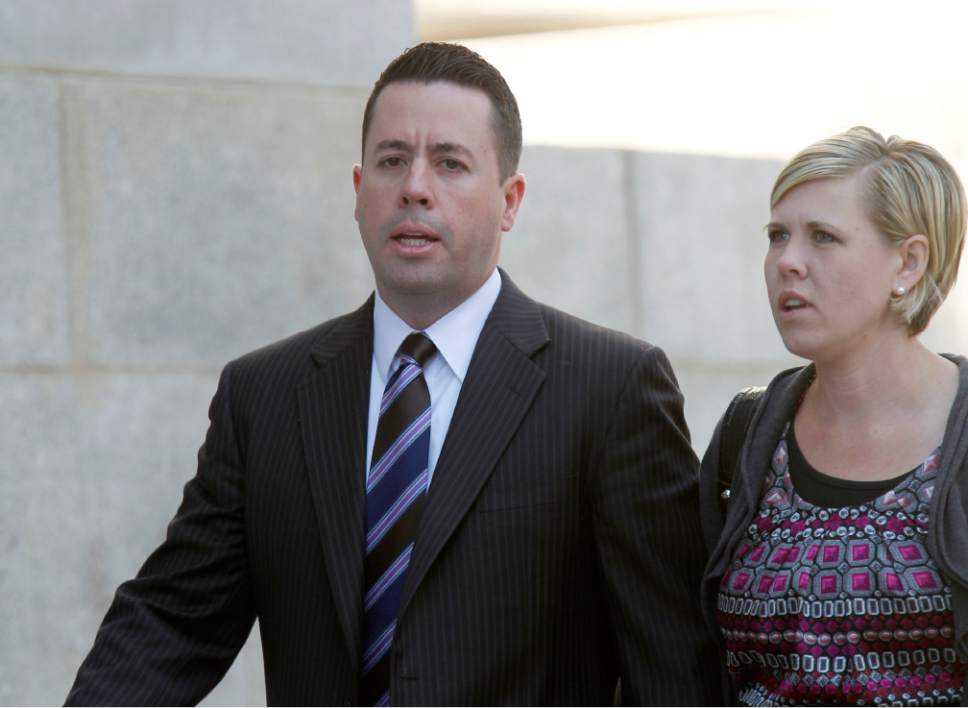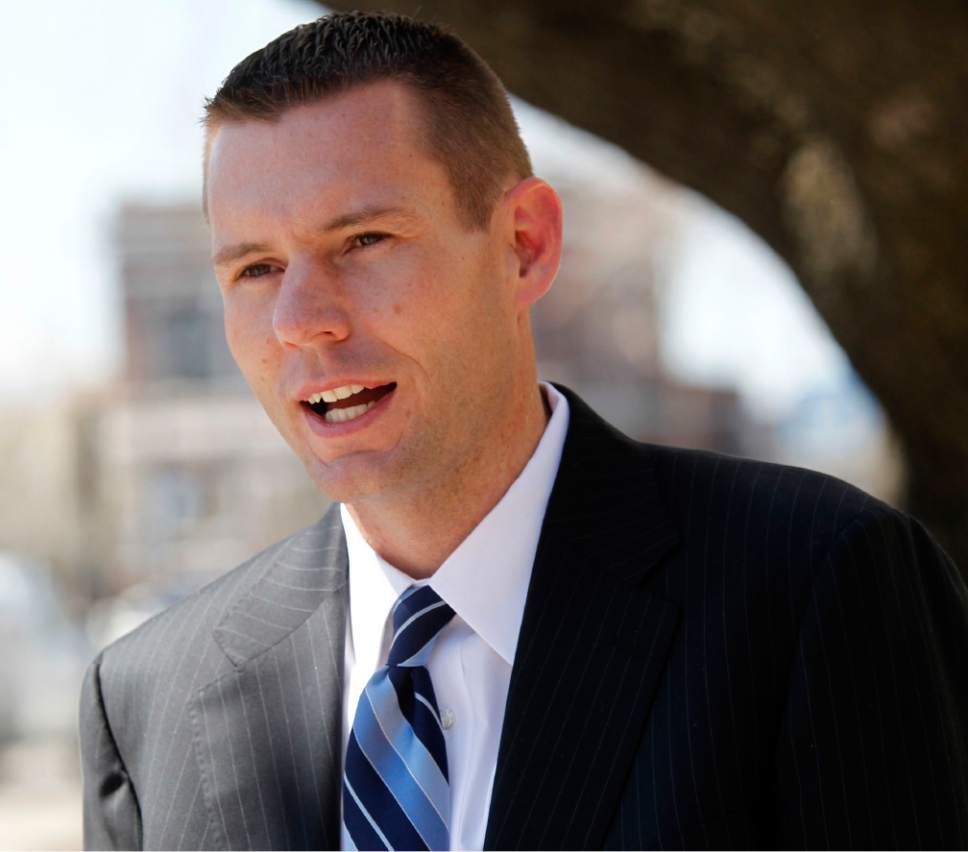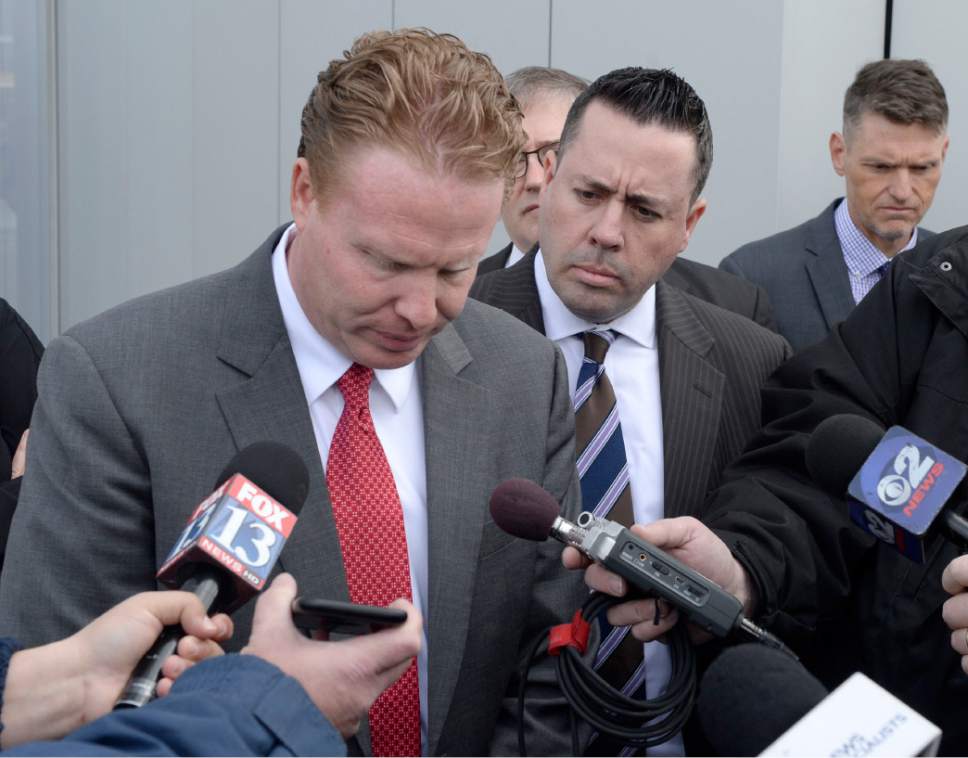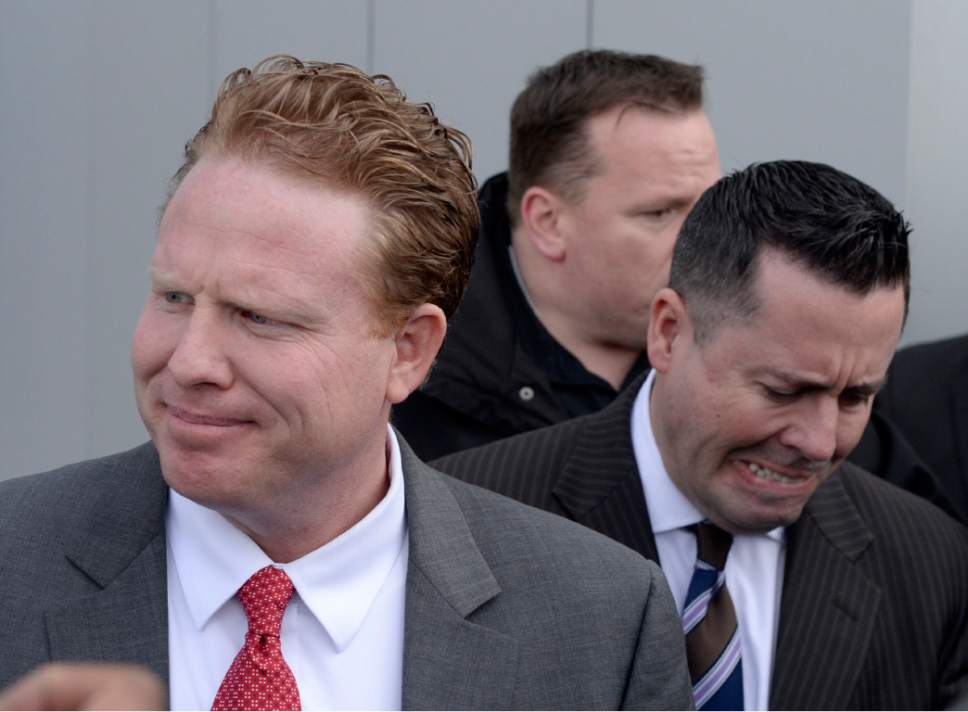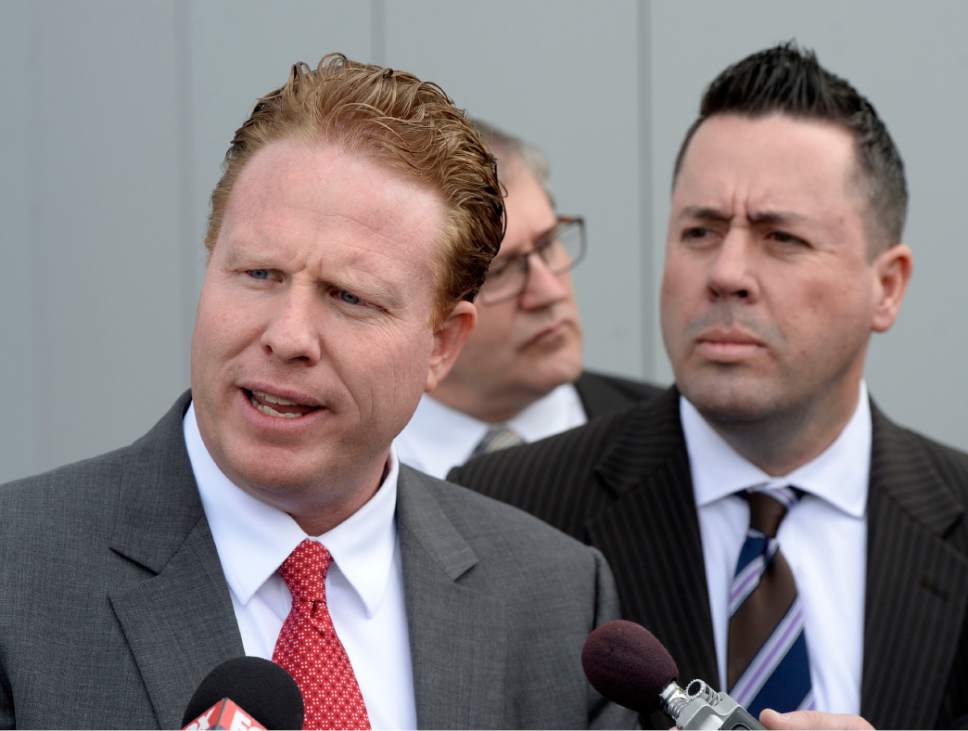This is an archived article that was published on sltrib.com in 2016, and information in the article may be outdated. It is provided only for personal research purposes and may not be reprinted.
One juror in the federal trial of online entrepreneur Jeremy Johnson says she is angry about information and issues that were kept from the jury, while another says Johnson should be acquitted of the eight charges on which the panel found him guilty if important evidence was improperly excluded.
The jurors were reacting to a recent motion by Johnson's attorneys seeking acquittal or a new trial.
On March 25, the jury found Johnson guilty on eight counts of providing false information to a bank, while acquitting him of 78 others, including bank fraud, wire fraud, money laundering and conspiracy.
Three of the 12 jurors, however, have been critical of the government's case, and two called the trial unfair, though they previously had said they believed their verdict was correct on the eight counts on which they found Johnson guilty, given the evidence and a federal law that requires a finding that the false information was intended to influence the decisions of a bank.
The guilty findings involved information provided on eight applications made to a company called CardFlex, which marketed services to businesses that wanted to take in credit-card payments. Jurors said the false information was the number of employees listed for shell companies, or entities registered with the names of employees and family members but which were controlled by Johnson's I Works operation.
Attorneys who have recently taken up Johnson's case filed a motion late last week that argues Johnson and two co-defendants were improperly prohibited from introducing evidence that the number of employees on the applications was immaterial, meaning it did not influence any decisions by Wells Fargo Bank, the entity in whose name the accounts were approved.
The defendants weren't able to bring in evidence about what CardFlex had told I Works about filling out the applications and whether the number of employees was even relevant to approval of the accounts. Improper jury instructions led to the guilty verdicts, while the defense's expert witness also was improperly kept from testifying, said a memorandum by attorneys Karra Porter and Mary Corporon.
Juror Katie Cox said she was angry after reading the document.
"The fact that the instructions we were given were biased to make sure we at least found them guilty of those counts even though the employee numbers were immaterial to influence the bank is so incredibly wrong it's outrageous," Cox said.
A second juror, Jason Harper, said his decision to convict Johnson on the eight counts and co-defendant Ryan Riddle on six of the same charges would have been different if evidence had been introduced that showed that the number of employees was not a factor in influencing the decisions on whether to open accounts for the shell companies.
"I would have changed the [verdict] on my end to not guilty on all counts," Harper said, "if evidence was allowed specifying its immateriality."
He also said he found the federal statue regarding making false statements to a bank so broad "any of us could be guilty of that." The government has not yet responded to the memo. The U.S. attorney's office for Utah declined comment.
Harper is the third juror who went through the trial and deliberations to speak about the trial. The other nine did not respond to requests for interviews.
Some of those who did not respond appeared to want to convict Johnson and Riddle on more charges, according to the three jurors who did grant interviews.
But the jury, after six days of deliberations, settled on convictions on just the false-statements allegations for Johnson and Riddle and acquitted them of all fraud-related charges.
Scott Leavitt, the I Works accountant, was acquitted on all 86 charges he faced, and jurors said a finding of guilty on him never appeared to be in play during deliberations.
Matthew Lalli, an attorney with experience primarily in civil fraud cases, said prosecutors face a high standard of proof in such cases "and it probably is not fair to conclude they overcharged just because they lost on those claims."
Harper noted he got stuck on one of the elements necessary to prove bank fraud, which said the defendants had to have taken actions that were "capable of influencing the decisions of the bank."
"I felt that we were missing a huge piece," Harper said, "basically the Wells Fargo piece."
He said evidence had shown that Wells Fargo had handed over almost complete authority for establishing and maintaining accounts to a credit-card processor called First Data Corp. It, in turn, delegated to CardFlex. Wells Fargo appeared content to sit back and collect fees, he said, while the other companies made all the decisions and took all the risks.
"I started thinking they could literally have created a company saying, 'We're going to defraud Wells Fargo Bank,' and it probably would have still got approved," Harper said.
His take on that issue mirrors that of Shelly Riley and Cox, who also said the evidence showed little if any involvement by Wells Fargo in opening and maintaining the accounts.
Leavitt's attorney, Marcus Mumford, filed a motion before the trial to dismiss the charges based on the same conclusion that the jury arrived at, but U.S. District Judge David Nuffer denied the motion.
"We found and established early on," Mumford said, "that Wells Fargo was not a victim at all."
Also, he said, no evidence was presented at the trial that showed Johnson and Riddle made any false statements to the bank.
Harper said testimony showed that online sales were a new and expanding phenomenon back at the time of the alleged fraud, 2009-2010, and that I Works was having a hard time adjusting. Company officials were following standard practices at the time, but which wouldn't be allowed today.
Riley and Cox were critical of the prosecution and its numerous objections that kept out much of the evidence the defense wanted to present.
Harper, however, feels differently.
"The prosecution did a fabulous job presenting how they think it was done," he said.
Still, Harper added, "the one problem I have is where are those accounts at Wells Fargo? Where's that information?"
Like Riley and Cox, Harper said he also found that another of the keys to the verdicts was the introduction by the defense late in the trial of the powers of attorneys signed by I Works employees and others who had lent their names and personal information so I Works could open new bank accounts and continue to charge customer credit cards.
According to testimony put on by the government, some of those whose names were used didn't know their personal information was tapped to create companies that in turn applied for bank accounts.
Harper said the signed and notarized powers of attorneys were key to the not-guilty decisions on the vast majority of the charges because they showed the employees had consented to use of their names and allowed I Works to sign documents for them.
Unlike Cox and Riley, Harper said the trial was fair, and he praised Nuffer's handling of it.
"The case was very complex; it was difficult," he said, "but I thought Nuffer did an excellent job."


